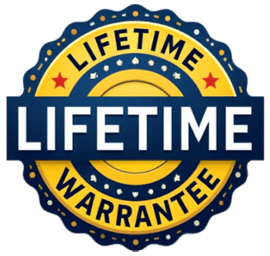Understanding Hard Water and Its Impact on Glassware in Florida
Hard water is a prevalent issue in many regions, particularly in Florida, where the natural geology contributes to high mineral content in the water supply. This article delves into the intricacies of hard water, its effects on glassware, and practical solutions to mitigate its impact.
What is Hard Water?
Hard water is defined by its elevated levels of dissolved minerals, primarily calcium and magnesium. These minerals are not harmful to health but can lead to various complications in daily life. The hardness of water is typically measured in grains per gallon (gpg) or parts per million (ppm), with higher values indicating harder water.
Causes of Hard Water in Florida
Florida’s unique geological composition, particularly its limestone deposits, is a significant contributor to hard water. As rainwater filters through these limestone formations, it absorbs minerals, resulting in water that is rich in calcium carbonate. This natural process is common in many areas, but Florida’s extensive limestone coverage makes it particularly susceptible to hard water issues.
Identifying Hard Water
Recognizing hard water in your home can be straightforward if you know what to look for. Common indicators include:
- White Residue: A chalky film on faucets, showerheads, and glassware.
- Soap Scum: Difficulty in lathering soaps and shampoos, often resulting in a sticky residue.
- Stains on Dishes: Cloudy or spotty glassware after washing.
- Dry Skin and Hair: Increased dryness or irritation after bathing.
If you notice these signs, it may be time to assess the hardness of your water.
The Effects of Hard Water on Glassware
Hard water can significantly affect the appearance and longevity of glassware. The minerals left behind after water evaporates can create unsightly stains and deposits, detracting from the clarity and shine of your dishes.
Water Spots and Stains
When hard water evaporates, it leaves behind mineral deposits that manifest as water spots. These spots can be particularly noticeable on glassware, making it appear dirty or unclean. Over time, these deposits can become more challenging to remove, leading to a dull appearance.
Impact on Cleaning
The presence of hard water can complicate the cleaning process. Soaps and detergents do not lather effectively in hard water, which means that dishes may not get as clean as they should. This can lead to a cycle of repeated washing, further exacerbating the problem.
Long-Term Damage
If left unaddressed, the effects of hard water can lead to permanent damage to glassware. The buildup of minerals can etch the surface of glass, making it more susceptible to scratches and reducing its overall lifespan.
How to Remove Hard Water Stains from Glassware
Fortunately, there are several effective methods for removing hard water stains from glassware. Here are some tried-and-true techniques:
Vinegar Solution
Vinegar is a natural and effective cleaner for hard water stains. To use this method:
- Prepare a Solution: Mix equal parts of vinegar and water in a spray bottle.
- Apply to Glassware: Spray the solution onto the stained areas and let it sit for about 15 minutes.
- Scrub Gently: Use a soft cloth or sponge to scrub the glassware gently.
- Rinse Thoroughly: Rinse with clean water and dry with a lint-free cloth.
Baking Soda Paste
Baking soda can also be an effective remedy for stubborn stains. Here’s how to use it:
- Create a Paste: Mix baking soda with a small amount of water to form a paste.
- Apply to Stains: Spread the paste over the stained areas and let it sit for 10-15 minutes.
- Scrub and Rinse: Gently scrub with a soft cloth, then rinse thoroughly.
Commercial Cleaners
For persistent stains, consider using commercial cleaning products specifically designed to combat hard water deposits. Always follow the manufacturer’s instructions for the best results.
Preventing Hard Water Stains
While removing existing stains is essential, preventing them from occurring in the first place is even better. Here are some strategies to keep your glassware sparkling clean:
Install a Water Softener
One of the most effective long-term solutions for hard water issues is to install a water softener. These systems work by removing calcium and magnesium ions from the water, replacing them with sodium ions. This process significantly reduces the hardness of the water, preventing mineral buildup on glassware and other surfaces.
Regular Cleaning
Incorporate regular cleaning routines for your glassware. Wiping down glasses after washing can help prevent water spots from forming. Additionally, using a rinse aid in your dishwasher can help reduce mineral deposits.
Use Distilled Water
For washing delicate glassware, consider using distilled water. This type of water has been purified to remove minerals, ensuring that no deposits are left behind after washing.
The Benefits of Soft Water
Switching to soft water can provide numerous advantages beyond just cleaner glassware. Here are some benefits of using softened water in your home:
Improved Cleaning Efficiency
Soft water enhances the effectiveness of soaps and detergents, allowing them to lather better and rinse away more easily. This means cleaner dishes, laundry, and surfaces with less effort.
Longer Appliance Lifespan
Appliances that use water, such as dishwashers and washing machines, can suffer from mineral buildup over time. Soft water reduces this risk, extending the lifespan of your appliances and reducing maintenance costs.
Healthier Skin and Hair
Many people notice an improvement in their skin and hair when using soft water. It can lead to softer skin and shinier hair, as there are fewer harsh minerals that can cause dryness and irritation.
Addressing Hard Water Issues in Your Home
If you suspect that hard water is affecting your home, there are several steps you can take to address the issue effectively.
Conduct a Water Test
The first step in addressing hard water is to conduct a water test. This will help you determine the hardness level of your water and identify any other potential contaminants. Many local water treatment companies offer free testing services.
Consult with Professionals
If your water test indicates high levels of hardness, consider consulting with a water treatment professional. They can recommend the best solutions for your specific situation, whether that involves installing a water softener or implementing a filtration system.
Regular Maintenance
Once you have a water treatment system in place, regular maintenance is crucial. This includes checking salt levels in water softeners, cleaning filters, and scheduling professional inspections to ensure everything is functioning correctly.
Conclusion
Hard water is a common challenge faced by many homeowners in Florida, particularly when it comes to maintaining glassware. By understanding the causes and effects of hard water, as well as implementing effective cleaning and prevention strategies, you can protect your glassware and enjoy the benefits of softer water in your home. Whether through DIY solutions or professional installations, taking proactive steps can lead to a cleaner, healthier living environment.



